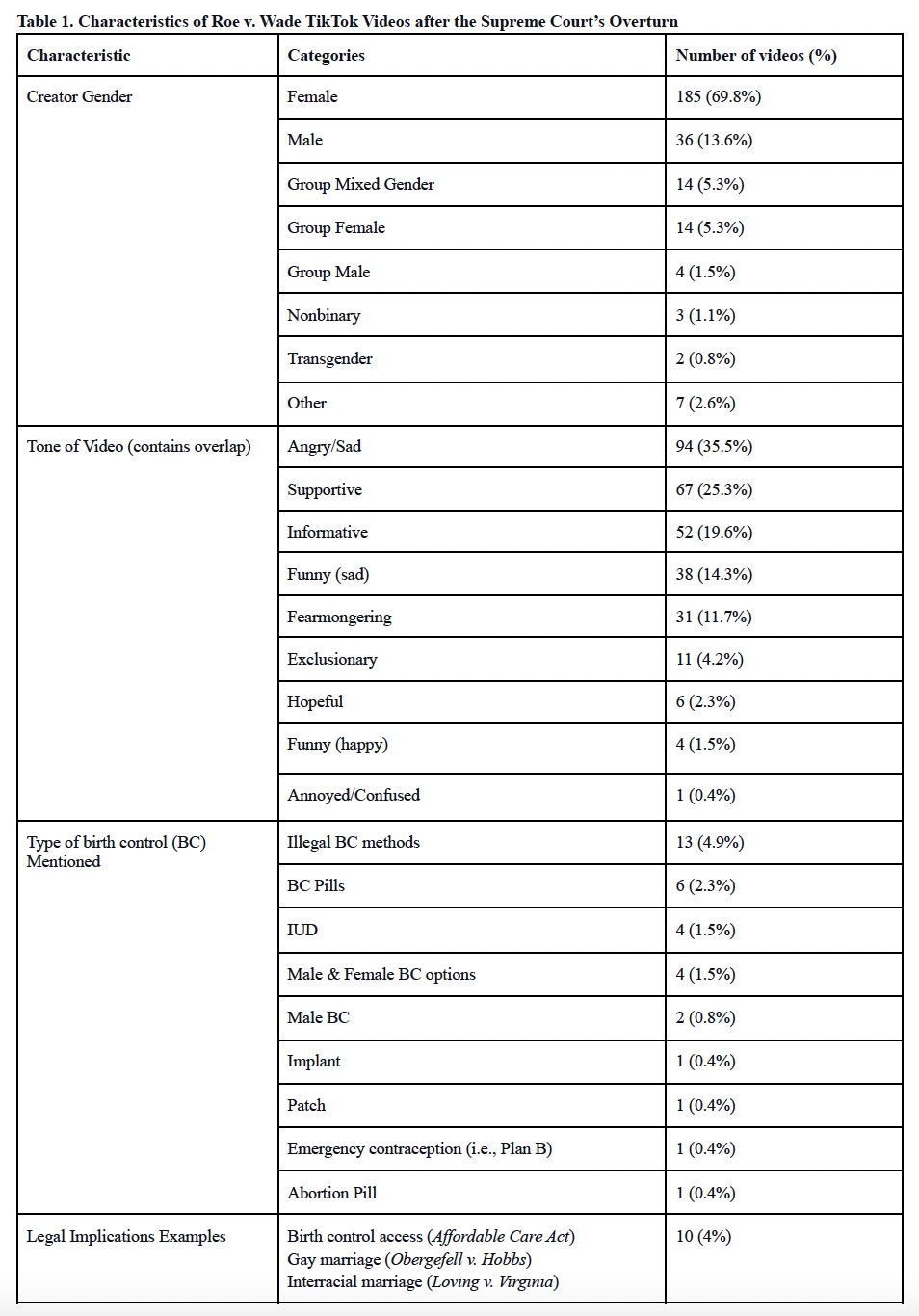Public Health & Prevention
Public Health & Prevention 2
90 - (Mis)information Regarding Sexual Health and Birth Control in a Post-Roe U.S.A.
Friday, April 28, 2023
5:15 PM - 7:15 PM ET
Poster Number: 90
Publication Number: 90.15
Publication Number: 90.15
Fiona P. Dubrosa, Cohen Children's Medical Center, New York, NY, United States; Kara Sangiuolo, Cohen Children's Medical Center, Fairfield, CT, United States; Ananya Terala, Cohen Children's Medical Center, Suwanee, GA, United States; Elaine X. Cheng, Cohen Children’s Medical Center, Bethesda, MD, United States; Ruth Milanaik, Cohen Children's Medical Center, Lake Success, NY, United States; Abhijeet Grewal, Cohen's Children Medical Center, New York, NY, United States

Fiona P. Dubrosa, BS BA (she/her/hers)
Visiting Scholar
Cohen Children's Medical Center
New York, New York, United States
Presenting Author(s)
Background: Social media consumption has increased among minors in the past several years. TikTok is a popular video-sharing app with one billion users monthly, with the majority being young adults or adolescents. Sexual health (SH) and birth control (BC) are popular topics for young viewers, with medical content accuracy left to viewer discretion.
Objective: To examine post-Roe v. Wade content to highlight educational deficiencies that clinicians should address with their young patients.
Design/Methods: The top TikTok videos under #postroe, #roevwade, and #roevswade were collected using an online web scraper. The following data were collected: 1) creator’s profession and gender; 2) mentions SH; 3) offers support (medical, legal, etc.); 4) discusses BC; 5) positives/negatives of overturn; 6) legal implications; 7) tone (hopeful, angry/sad, etc.); 8) gender inclusion. Descriptive analysis was conducted in R.
Results: A total of 265 videos (538,011,109 views) were analyzed. Of creators, 90% (n=238) were laypeople and only 10% (n=27) were medical professionals. Of the layperson videos, 13% (n=31) and 13% (n=30) mentioned SH and BC, respectively. Medical professionals discussed SH in 44% (n=12) and BC in 27% (n=7) in videos. Table 1 outlines BC mentioned, legal implication, user gender, and video tone. Overall, 17% (n=44) of users offered support (Figure 1). Pro-choice discussion accounted for 93% of videos (n=246), where 57% of these videos (n=140) discussed negative implications of the overturn (“forced to die”; “increased suicide rates and unsafe abortions.”) Gender inclusivity was mentioned in 8% of (n=20) videos, where 35% (n=7) discussed this negatively.
Conclusion(s): The vast majority of TikTok videos are made by laypeople without any medical education, potentially spreading inaccurate information to millions of pediatric viewers. An alarming 66% of videos have negative undertones, possibly instilling fear in young users. Many users offer support to those impacted, suggesting TikTok may provide a valuable community for those seeking support. Our results indicate a need for medical professionals to disseminate accurate and unbiased educational information via social media to connect with its vast online community of young people. Further, medical organizations should provide instructions for physicians on how to make effective medical content in order to present an alternative to layperson perspectives.
.png)

